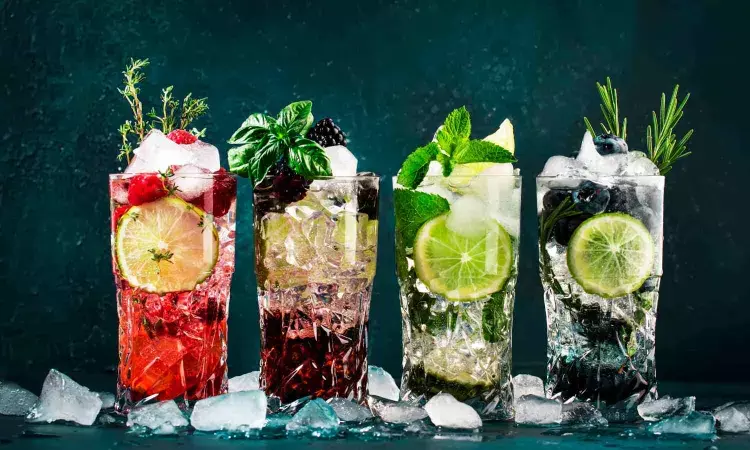- Home
- Medical news & Guidelines
- Anesthesiology
- Cardiology and CTVS
- Critical Care
- Dentistry
- Dermatology
- Diabetes and Endocrinology
- ENT
- Gastroenterology
- Medicine
- Nephrology
- Neurology
- Obstretics-Gynaecology
- Oncology
- Ophthalmology
- Orthopaedics
- Pediatrics-Neonatology
- Psychiatry
- Pulmonology
- Radiology
- Surgery
- Urology
- Laboratory Medicine
- Diet
- Nursing
- Paramedical
- Physiotherapy
- Health news
- Fact Check
- Bone Health Fact Check
- Brain Health Fact Check
- Cancer Related Fact Check
- Child Care Fact Check
- Dental and oral health fact check
- Diabetes and metabolic health fact check
- Diet and Nutrition Fact Check
- Eye and ENT Care Fact Check
- Fitness fact check
- Gut health fact check
- Heart health fact check
- Kidney health fact check
- Medical education fact check
- Men's health fact check
- Respiratory fact check
- Skin and hair care fact check
- Vaccine and Immunization fact check
- Women's health fact check
- AYUSH
- State News
- Andaman and Nicobar Islands
- Andhra Pradesh
- Arunachal Pradesh
- Assam
- Bihar
- Chandigarh
- Chattisgarh
- Dadra and Nagar Haveli
- Daman and Diu
- Delhi
- Goa
- Gujarat
- Haryana
- Himachal Pradesh
- Jammu & Kashmir
- Jharkhand
- Karnataka
- Kerala
- Ladakh
- Lakshadweep
- Madhya Pradesh
- Maharashtra
- Manipur
- Meghalaya
- Mizoram
- Nagaland
- Odisha
- Puducherry
- Punjab
- Rajasthan
- Sikkim
- Tamil Nadu
- Telangana
- Tripura
- Uttar Pradesh
- Uttrakhand
- West Bengal
- Medical Education
- Industry
Soft Drink Consumption Linked to Depression Risk via Gut Microbiota: Study

A new multicenter study published in the Journal of the American Medical Association uncovered that soft drink intake may contribute to major depressive disorder (MDD) by altering gut microbiota, with stronger effects observed in women.
The research was conducted as part of the Marburg-Münster Affective Cohort, and analyzed data from 405 patients with MDD and 527 healthy controls aged 18 to 65. The participants were recruited from the general population and primary care between 2014 and 2018, with statistical analyses carried out in 2024.
The findings suggest that frequent consumption of soft drinks is not only associated with higher odds of being diagnosed with MDD but also with greater symptom severity among those already affected. Also, the study identified changes in the gut microbiota, where an increase in the bacterium Eggerthella is a key mediator in this link.
The results showed that overall, people who consumed more soft drinks had an 8% higher risk of MDD diagnosis when compared to those who consumed fewer or none. This effect was more pronounced in women, where the risk hiked by nearly 17%. Symptom severity also rose with higher soft drink intake, and again, women displayed a stronger association than men.
When gut microbiota was analyzed, women who drank more soft drinks had significantly higher levels of Eggerthella. This bacterium has previously been connected to inflammation and mental health outcomes. No such link was found with another gut genus, Hungatella. Also, mediation analysis revealed that the presence of Eggerthella explained about 3.8% of the link between soft drink intake and MDD diagnosis, and 5% of the link with symptom severity. While modest, these findings highlight a biological pathway that warrants further exploration.
Overallhe study argues that reducing soft drink consumption could become a valuable public health strategy for reduing depression risk, particularly among women. While the results do not prove direct causation, they add weight to growing evidence that dietary habits influence both physical and mental health through complex gut-brain interactions. As the global burden of depression continues to increase, these findings point toward lifestyle and microbiome-focused approaches as part of future mental health strategies.
Source:
Edwin Thanarajah, S., Ribeiro, A. H., Lee, J., Winter, N. R., Stein, F., Lippert, R. N., Hanssen, R., Schiweck, C., Fehse, L., Bloemendaal, M., Aichholzer, M., Bouzouina, A., Uckermark, C., Welzel, M., Repple, J., Matura, S., Meinert, S., Bang, C., Franke, A., … Hahn, T. (2025). Soft drink consumption and depression mediated by gut microbiome alterations. JAMA Psychiatry (Chicago, Ill.). https://doi.org/10.1001/jamapsychiatry.2025.2579
Neuroscience Masters graduate
Jacinthlyn Sylvia, a Neuroscience Master's graduate from Chennai has worked extensively in deciphering the neurobiology of cognition and motor control in aging. She also has spread-out exposure to Neurosurgery from her Bachelor’s. She is currently involved in active Neuro-Oncology research. She is an upcoming neuroscientist with a fiery passion for writing. Her news cover at Medical Dialogues feature recent discoveries and updates from the healthcare and biomedical research fields. She can be reached at editorial@medicaldialogues.in
Dr Kamal Kant Kohli-MBBS, DTCD- a chest specialist with more than 30 years of practice and a flair for writing clinical articles, Dr Kamal Kant Kohli joined Medical Dialogues as a Chief Editor of Medical News. Besides writing articles, as an editor, he proofreads and verifies all the medical content published on Medical Dialogues including those coming from journals, studies,medical conferences,guidelines etc. Email: drkohli@medicaldialogues.in. Contact no. 011-43720751


